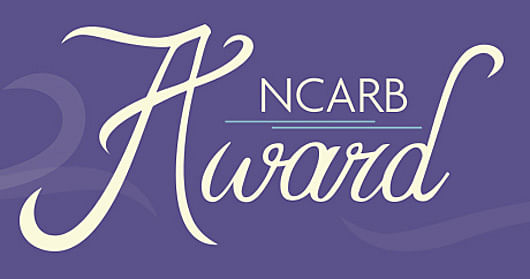Three architecture schools win over $99K in 2015 NCARB Award
By Bustler Editors|
Wednesday, Nov 18, 2015

Related
The National Council of Architectural Registration Boards recently announced the 2015 recipients for the NCARB Award, which supports architecture school initiatives that best integrate practice and education through innovative means. The NCARB Award Jury encourages schools to develop curricula that will have lasting positive impact for students and faculty.
This year, the NCARB Jury selected the proposals of Mississippi State University, Philadelphia University, and the University of Florida, who collectively won over $99,000.
Read more about each school's proposal below.
Program: Mississippi State University; College of Architecture, Art, and Design; Mississippi State, MS
Proposal: “Expanding the Agency of Architects”
Total Award: $30,048
"Through workshops, inquiry, and immersion, students will be exposed to different practice management approaches by partnering with a local community design center, Carl Small Town Center. Students will explore social impact design to improve their communication skills, increase their knowledge of sustainability, be introduced to practice management methodologies, and apply their knowledge to a project in the Mississippi Delta. The class will allow students to explore different types of practice and think about their own career goals. The NCARB Award Jury recognized the proposal for its collaboration with the local community and design center, and for exposing students to different types of practice. The proposal also recognizes the architect’s role in designing projects that are resilient to social, economic, and environmental challenges. The class will be open to students from multiple years and areas of discipline to work together to learn and apply their knowledge."
Program: Philadelphia University; College of Architecture and the Built Environment; Philadelphia, PA
Proposal: “Interdisciplinary Design and the Experimental Architecture Studio (IDEAS) on Textile Material Strategies”
Total Award: $34,208
"This proposal brings students into an interdisciplinary design and experimental architecture studio to explore architectural textile composites for building envelopes. Students and practitioners from architecture, engineering, and textiles disciplines will study emerging technologies, new materials, and environmental issues both in school and in practice. The project looks to demonstrate how architects can drive the creation of innovative material systems and technologies. It will also assess the impact of student-practitioner partnerships and how undergraduate research can benefit students’ understanding of constructability, sustainability, technology, and other issues central to practice. The NCARB Award Jury recognized the proposal’s interdisciplinary collaboration and rigorous assessment of its outcomes. Students and practitioners will be testing their outcomes together, and the results will be developed into disseminated resources and exhibits."
Program: University of Florida; School of Architecture; Gainesville, FL
Proposal: “Expanding Fields: Materiality + Making to Inform Design Education and Practice”
Total Award: $35,000
"Turning the studio into a materials laboratory, students will explore innovative ways to assemble materials and be exposed to issues regarding structural soundness construction tolerances, and the effects of constructability on design ideas. Students will work directly with practitioners and manufacturers to understand how the materials they select will impact the structural soundness and safety of their designs. They will have the opportunity to use the real materials to build a scaled construction of their design. The NCARB Award Jury recognized the proposal for its collaboration with manufacturers and challenging students to change the way they think about what they do. Students will be exposed to the materials at the beginning of the design process so they can inform their designs. They will also have the opportunity to work directly with manufacturers and learn about new technologies, sustainability, and constructability."

Share
0 Comments
Comment as :